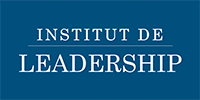Certification in Leadership and Management Skills
Program overview
The Certification in Leadership and Management Skills program has been developed in collaboration with university faculty and leaders in their field. Each participant will have the opportunity to meet, network and learn the best strategies from at least fifteen different stakeholders during this elite program.
As the first of its kind, this certification strives to develop effective leaders capable of rallying teams, resolving conflicts, skillfully navigating change, and meeting the challenges their organizations face.
This program is offered in partnership with:

Learn from top business leaders
Who benefits most?
This certification is intended for individuals in leadership positions who wish to further develop their management skills. They represent a wide range of sectors, as well as diverse personal profiles including:
- Managers and executives, from public and private organizations, not-for-profit, and others;
- Senior directors of SMEs;
- Entrepreneurs and owners of SMEs;
- Emerging entrepreneurs.
Program modules
- Understand what a strength is.
- Know how to identify the strengths of your customers/staff.
- Carry out the steps to develop the use of your strengths at work.
- Get acquainted with the various ways to implement strength-based management in real environments.
- Communicate your vision and its expected outcomes clearly and strategically.
- Enhance both your oral and written presentations to be more effective and persuasive.
- Learn to prepare for a presentation to be delivered to colleagues, supervisors, clients or the board of directors.
- Explore and practice different approaches and techniques for data selection and visualization.
- Stand out and improve your chances of impressing and influencing your audience.
- Develop collaborative relationships, mobilize and coach employees .
- Increase your team’s performance level.
- Stimulate and support your employees in achieving their objectives.
- Develop strong leaders within your organization.
- Inspire and lead in difficult times.
- Constantly increase the engagement and productivity of your team.
- Create a mobilizing work environment for your team.
- Acknowledge the importance of recognition for greater organizational performance.
- Understand the fundamental characteristics of positive recognition.
- Thoroughly implement these practices within your organization.
- Learn advanced emotional intelligence and personality decoding tools to maximize the performance and commitment of each team member.
- Provide strategies to mobilize, influence and persuade through advanced techniques of effective communication and the language of influence.
- Understand the impact of perceptions, values and beliefs.
- Strengthen listening, questioning and constructive feedback skills.
- Learn to successfully influence various stakeholders in your organization.
- Gain acceptance of your requests from top management and partners.
- Acquire the best strategies to become an effective player in your organization.
- Learn techniques to create strategic alliances that last over the long term.
- Assert your ideas and rally various stakeholders around your projects.
- Become a strategic and ethical actor in your organization.
- Exert influence in complex situations.
- Define team performance factors.
- Learn about the “8 Practices for Building a Successful Team.”
- Compare a “name-only” team vs. a “real team.”
- The steps to starting my team.
- Understanding team members.
- Identify team and individual aspects to productivity.
- Distinguish between organizational and individual factors.
- Create a culture that optimizes contribution: “feedback” vs. “feedforward.”
- Create a favourable “social desirability” dynamic.
- Become aware of your emotional intelligence.
- Improve your soft skills.
- Develop your self-awareness.
- Develop your social radar to adapt to others.
- Develop positive and sustainable interpersonal relationships.
- Exercise your leadership to promote better well-being and performance.
Integration assignment
Integration work is mandatory to obtain your certificate. This work is to be done following the training. You will have three weeks to complete it. It is meant to be a personal reflection: the objective is to connect what you have learned in training with your reality as a manager in your organization.